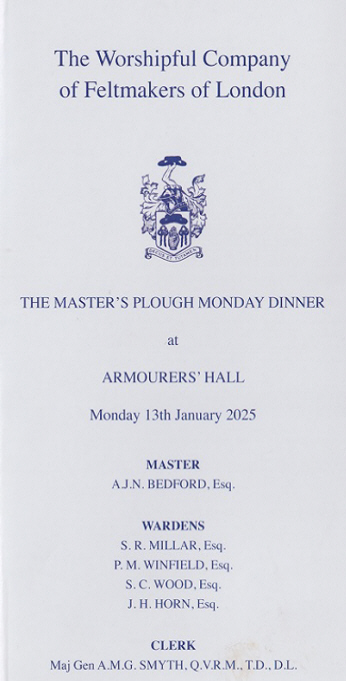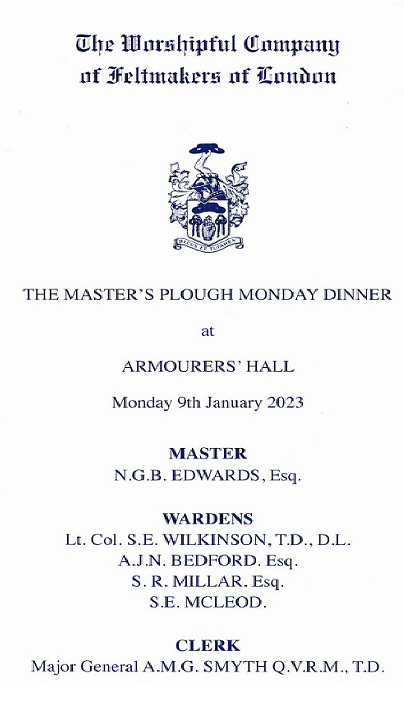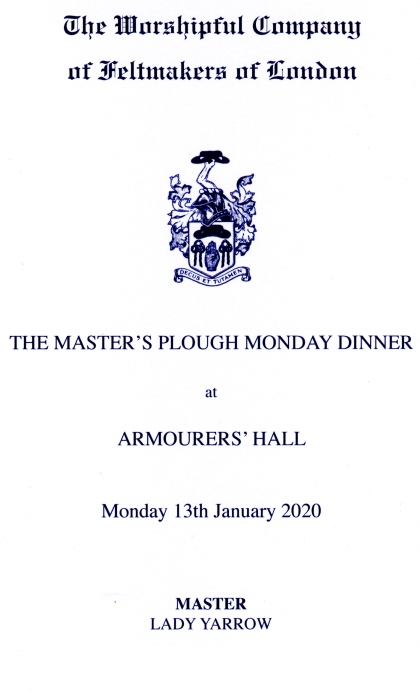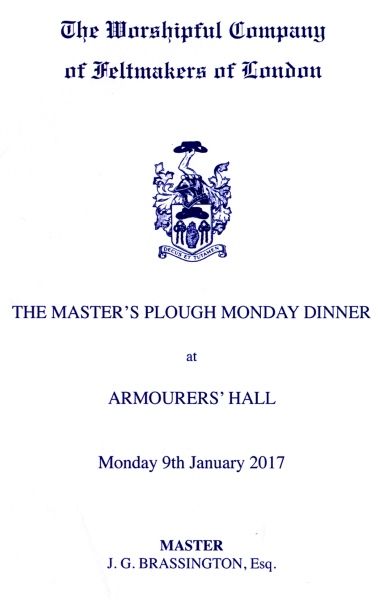
Tel: 020 7620 1818 email: cookandbutler@btconnect.com
The Worshipful Company of Feltmakers of London
www.feltmakers.co.uk
The Master's Plough Monday Dinner
January 13th 2025, Armourers' Hall, City of London


The Master's Plough Monday Dinner
January 9th 2023, Armourers' Hall, City of London


The Master's Plough Monday Dinner
January 2020, Armourers' Hall, City of London



The Master's Plough Monday Dinner
January 2017, Armourers' Hall, City of London



PLOUGH MONDAY
Plough (or Plow) Monday is the first Monday after
Epiphany or the first Monday after Twelfth Day and is of ancient origin.
In early feudal times it marked the end of the Christmas holidays when
men returned to their plough or daily work. It later became a general
holiday in the fifteenth century.
On this day the ceremony of the Plough took place. It was known as the
White Plough or Fond Plough, because those taking part were mummers
dressed in white, and the procession was "fond" or foolish. The men who
dragged the plough from door to door in the parish or village were
called Plough Stots, Plough Bullocks or Jags, and solicited "Plough
Money" to spend on a frolic. If the householder was stingy, they would
plough up the ground in front of his door. With the Plough Jags went the
Fool and the Queen of the feast (the Bessy - a man in a women's dress)
who would later perform in the traditional Plough Play.
The well-known saying "God speed the plough" is an expression of good
wishes for success and prosperity, and comes from the old song sung by
the ploughmen.